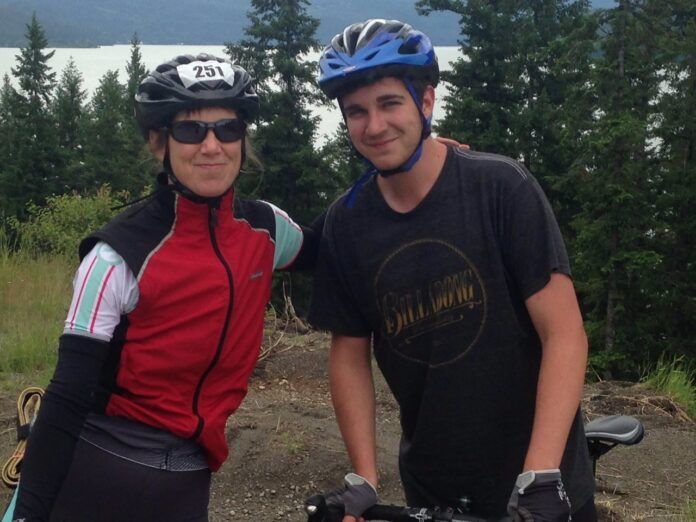A Victoria woman traveled to visit her son in Winlaw for his 26th birthday only to find out that shortly after she arrived, he was dead from poisoned drugs.
“My son was in college,” says Jessica Michalofsky, mother of Aubrey. “He graduated with awards from Selkirk College’s law and justice program. He used drugs, but he had no intention of dying on Aug. 30.”
Michalofsky says Aubrey used drugs in the past, and he was doing all the right things to make sure he stayed clean, which meant using a safe supply of methadone.
She says he was supportive of anyone around him trying to get help, but needing transportation to obtain a safe supply of narcotics made it challenging for him and others.
“Sharing something like methadone is a safe supply,” she says. “You are sharing something you know is safe, and currently you can be punished for that.”
According to Michalofsky, her son was supplying a fellow member of his methadone program. After his provider heard he was doing this, his weekly supply was restricted to daily so he had to travel to Nelson to obtain his supply.
“My son lived in Winlaw and he had to come into Nelson,” she says. “When he lost his ability to carry methadone he had to go into Nelson every day. He didn’t have a car, so he left the methadone program, which led to his death. ”
She says the government doesn’t understand what these punitive measures are doing to drug users and they need to lift them to enable safe supply routes.
“This is not isolated to homelessness and we need to reduce that stigma,” she says. “When we look at the coroner’s statistics, 74 per cent of people are dying in private residences, not on the streets.”
She added that according to the statistics, tainted supply is the leading cause of death for people aged 19-39, and the second leading cause of death in ages 40-59.
“We are not likely to [die from getting] hit on our bikes, or in a car accident, or getting COVID,” she says. “The adults, and kids, of our generation are likely to die from toxic drugs.”
Michalofsky says programs like these are completely necessary to ensure people have access so they can ensure they don’t overdose, or get poisoned drugs. This way they have the choice before it is too late.
“People who are dead can’t choose recovery,” she says. “They can’t get treatment, they can’t maintain relationships with loved ones. Although my son used drugs he was never given the opportunity to get better, or to seek treatment.”
She is calling on the government to make sure they educate users and others on what safe supply is and how to obtain it.






